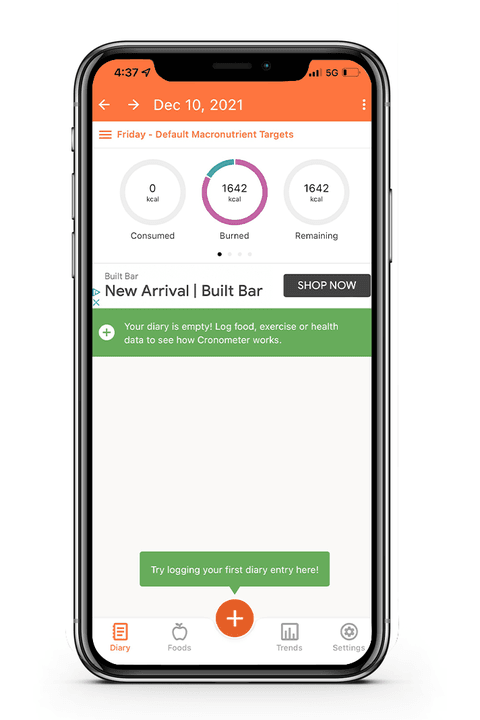In this article, we will learn about the concept of Understanding Calories. Whether you’re trying to lose weight or trying to gain weight, Tracking your food calories is very important

The Concept Of Understanding Calories
- Every food and drink is measured in calories which can identify the energy level of the item.
- These calorie requirements can vary depending on levels of physical activity, body weight, and other factors.
- As professional guidance, an average man has a requirement of 2500kcal per day to keep his body healthy.
- An average woman needs around 2000kcal per day.
Calories and energy balance
- These calories provide energy which helps to properly function all body organs and keep us alive.
- Our every body movements consume energy through calories which include each breath to running. Our body produces energy when we eat and drink.
- If we want to maintain a constant weight, we should understand how many calories burn and consume on daily basis. We should count the calories in every food which we eat.
- If you do less physical activities, you take more energy. you will gain weight.
If you do more physical activities, you take less energy. you will lose weight. - In this case, you take more energy on a day, don’t worry about that. Then you have to consume fewer calories on the following days.
Must Read: 6 high calories foods for gaining
Total Energy Expenditure:

Body Composition
Lean body mass(LBM) is the main factor of REE. It includes multiple things like water, bone, skeletal muscles, and other organs such as the liver, brain, and heart. To cite an example. the liver accounts for about 18 per cent. Building muscles will then increase your metabolic rate. More calories are likely burned in building and maintaining the muscles than from the muscle’s effect on the REE.
Properly measure calories in food
- We will help you to manage the calories in your food and drink can ensure you avoid unnecessary calories.
- Almost all food packaging companies mention calorie content in the nutrition label.
- This kind of information appears under the energy heading. The calorie is often measured in kcals, which is also called kilocalories(1000kcals) and in KJ, which is also known as kilojoules(metric measurement of calories).
- The nutrition label will also inform you how many calories are contained in each food and drink, in 100 grams or 100 milligrams. Therefore, you should compare the calorie content of various items.
- You can utilize the calorie information to assess how a specific food item fits into your diet or not.
Calorie counters

- Some calorie counters are available for mobile and computer devices. These are free of cost and you can download on your devices and use them.
- Some health-conscious restaurants add calorie charts on their menu, so you order food according to your calorie requirement.
Burning Calories
- The number of calories people consume by doing a physical activity varies in totally demand on a range of factors, including size and age.
- If you want to gain weight, it means you have to eat more calories than you have been using.
- If you want to lose weight, it means you have to eat fewer calories than you have been using.
3 more tips to track your calorie intake
Where Do Calories Come From?
There are calories in every food we eat, which our body needs for energy and nutrition. Different kinds of foods have different amounts of calories:
- Fats: Fat provides nine calories per gram, making high-fat foods like cheese, avocados, and oils among those with the largest calorie count.
- Carbohydrates: carbohydrates provide 4 calories per gram. Approximately half of the daily calories ought to contain carbohydrates. Most famous carbs such as rice, multi-grains, and starches are the main sources of carbs.
- Protein: Protein provides 4 calories per gram. About one-third of calories should contain in meat, fish, and dry fruits.
Youtube Video: What is a calorie?
FAQs about Understanding Calories
Q.1 What is Understanding Calories?
Ans: The Amount of Energy in food is measured in calories.
Q.2
Ans:
